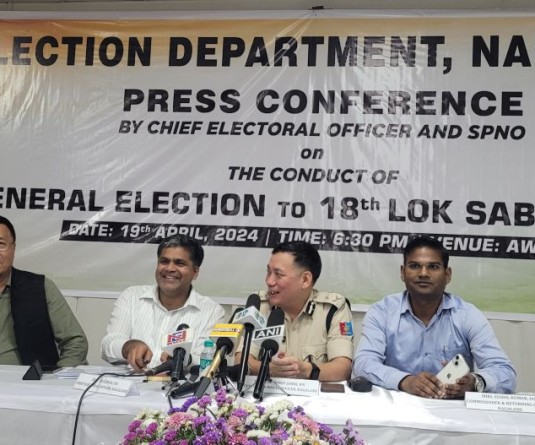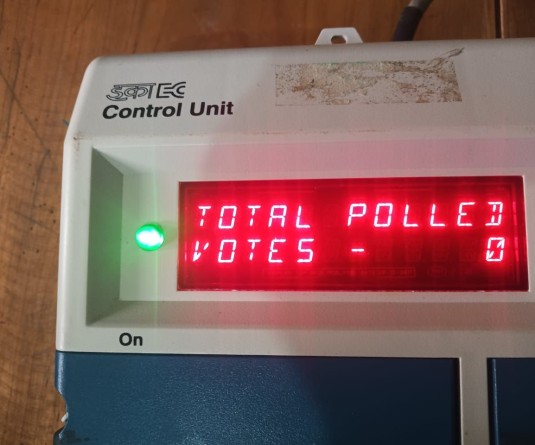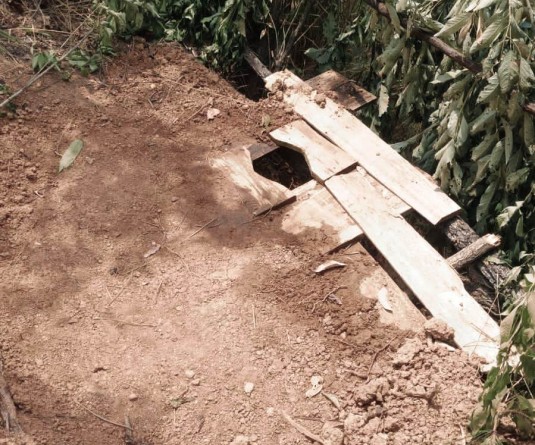
• Credit agreement signed between GoI, World Bank and Nagaland govt
• Total cost of project is $60 million, closing date set at March 31, 2023
Morung Express News
Dimapur | January 16
The Government of India, the Government of Nagaland and the World Bank have signed a massive 48 million dollars credit agreement for the ‘Nagaland Health Project,’ which aims to improve health services across the state.
The agreement for the project was signed by Raj Kumar, Joint Secretary, Department of Economic Affairs, Ministry of Finance, on behalf of the Government of India; L Watikala, Principal Director, Department of Health and Family Welfare, Government of Nagaland; and Genevieve Connors, Program Leader and Acting Country Director, World Bank India, on behalf of the World Bank.
Credit for the project, which was approved on December 19, 2016, is from the International Development Association (IDA) - the World Bank’s concessionary lending arm - with a maturity of 25 years, including a 5-year grace period. The total cost of the project, according to the World Bank is 60 million dollars, with the IDA providing 48 million dollars, and the borrower i.e. the Government of India committing the remaining 12 million dollars.
With the Nagaland State Government being the implementing agency, the closing date of project is set at March 31, 2023.
The multimillion dollar health project aims to empower village health committees to deliver better health service delivery across the state and strengthen existing health systems and public health facilities. This will include capacity-building and results-based financing for village health committees, who are responsible for local health services, to improve services as well as enhance the knowledge and awareness of their communities.
The project will also invest in improving health services in 177 facilities, including through water and sanitation and off-grid electricity backup. The project aims to strengthen statewide health system components, including information, procurement and supply chain management, and human resource management systems.
A release from the World Bank quoted Genevieve Connors, Program Leader and Acting Country Director for World Bank in India as stating that “strengthening health and nutrition service delivery systems both at the local and at the state level will go a long way in improving the quality of health care services in Nagaland.” “We also hope the project will benefit from the World Bank’s experience over the years in financing health system development projects globally as well as across several Indian states,” she stated.
Raj Kumar, Joint Secretary, Department of Economic Affairs, Ministry of Finance hoped that the project would help the Government of Nagaland improve the efficiency, quality and accountability of its health services by strengthening the Health Department’s management and systems capacity, its governance and accountability mechanisms, as well as its ability to engage effectively with health committees at the village level. “This will be done by complementing existing activities of both the state and the National Health Mission,” he said.
Apart from state-wide investments to improve health systems, the project will focus on building knowledge and skills of Village Health Committees, including fostering involvement of women’s groups, to manage and oversee health services for their communities. An incentive strategy, according to the World Bank, will be used whereby funding will be provided to communities on the basis of progress on defined indicators of improved health and nutrition-related services and practices. In turn, communities will use the grants for activities and investments that are important to them and which have impacts on health and nutrition.
Another key initiative of the project will be to improve the conditions of health facilities for both staff and patients. The World Bank noted that frequent outages of power supply in health centers and lack of safe drinking water and inadequate sanitation “are not only undermining the quality of health services in the state but also reduce patient demand for services while affecting the working conditions and motivation of health staff.”
Recognition the potential of solar energy generation in the state, the project will invest in off-grid electrical power solutions adapted to the needs of each targeted health facility. It will also support installation of solar water pumps and water heaters in these facilities. At least 100 health facilities are expected to benefit from improved power supply.
Repair of existing water supply piping and storage facilities and installation of rooftop water harvesting systems at targeted health centres also come under the project. At least 125 health facilities are expected to benefit from improved water and sanitation.
Patrick Mullen, Senior Health Specialist, World Bank and World Bank’s Task Team Leader for the project, stated that the “the project will support both community-level and state-wide capacity to improve delivery of essential health services in Nagaland.”





